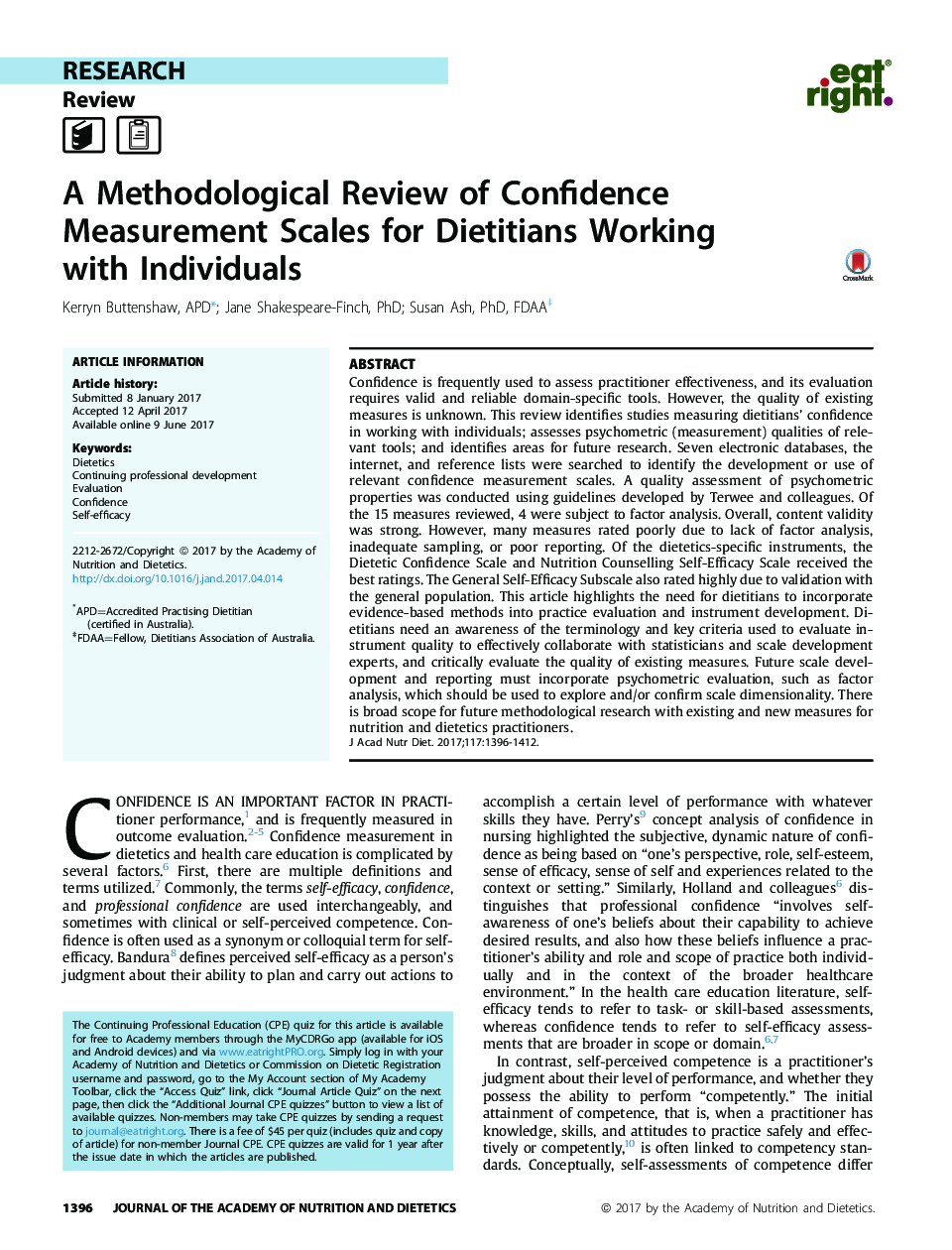| Article ID | Journal | Published Year | Pages | File Type |
|---|---|---|---|---|
| 5568602 | Journal of the Academy of Nutrition and Dietetics | 2017 | 17 Pages |
Abstract
Confidence is frequently used to assess practitioner effectiveness, and its evaluation requires valid and reliable domain-specific tools. However, the quality of existing measures is unknown. This review identifies studies measuring dietitians' confidence in working with individuals; assesses psychometric (measurement) qualities of relevant tools; and identifies areas for future research. Seven electronic databases, the internet, and reference lists were searched to identify the development or use of relevant confidence measurement scales. A quality assessment of psychometric properties was conducted using guidelines developed by Terwee and colleagues. Of the 15 measures reviewed, 4 were subject to factor analysis. Overall, content validity was strong. However, many measures rated poorly due to lack of factor analysis, inadequate sampling, or poor reporting. Of the dietetics-specific instruments, the Dietetic Confidence Scale and Nutrition Counselling Self-Efficacy Scale received the best ratings. The General Self-Efficacy Subscale also rated highly due to validation with the general population. This article highlights the need for dietitians to incorporate evidence-based methods into practice evaluation and instrument development. Dietitians need an awareness of the terminology and key criteria used to evaluate instrument quality to effectively collaborate with statisticians and scale development experts, and critically evaluate the quality of existing measures. Future scale development and reporting must incorporate psychometric evaluation, such as factor analysis, which should be used to explore and/or confirm scale dimensionality. There is broad scope for future methodological research with existing and new measures for nutrition and dietetics practitioners.
Related Topics
Life Sciences
Agricultural and Biological Sciences
Food Science
Authors
Kerryn APD, Jane PhD, Susan PhD, FDAA,
